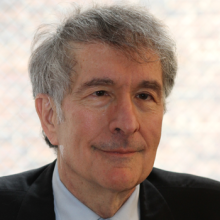
Howard Gardner is the Hobbs Research Professor of Cognition and Education at the Harvard Graduate School of Education. Among numerous honors, Gardner received a MacArthur Prize Fellowship in 1981, the Prince of Asturias Award for Social Sciences in 2011, in 2015, the Brock International Prize in Education, and in 2020, he was presented with the Distinguished Contributions to Research in Education Award by the American Educational Research Association. Gardner is best known in educational circles for his theory of multiple intelligences.
Gardner was Co-Director of Project Zero and served on its Steering Committee and Executive Committee. He retired as a committee member in June 2023 and is now Senior Director.
He directs The Good Project, a group of initiatives that promotes excellence, engagement, and ethics, preparing people of all ages to become good workers and good citizens who contribute to the well-being of society. For current information, please see thegoodproject.org.
With Wendy Fischman, Gardner completed a national study documenting how different constituencies of campuses think about the goals and value of higher education in the United States. Their book, The Real World of College was published in 2022. For current information, see therealworldofcollege.com.
Gardner’s intellectual memoir, A Synthesizing Mind, was published in 2020. His collected works, The Essential Howard Gardner on Education and The Essential Howard Gardner on Mind, were published in 2024. For more information on Gardner’s activities, please visit his website at HowardGardner.com. He also maintains several blogs on MI theory, synthesizing, higher education, TheGoodProject, and other topics of interest.

-
-
-
-
-
-
Support PZ's Reach